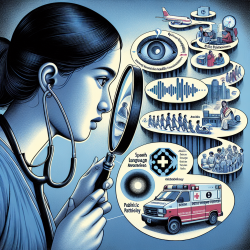Understanding the Role of Moral Psychology in Medical Education
In the ever-evolving landscape of medical education, understanding and navigating moral conflicts is essential for fostering effective communication and collaboration. The research article "Navigating conflict and difference in medical education: insights from moral psychology" highlights the potential of integrating moral psychology into medical training. This approach can enhance the ability of medical professionals to respond constructively to behaviors they may find immoral or misguided.
The Science Behind Moral Foundations Theory
Moral Foundations Theory (MFT), developed by Jonathan Haidt, categorizes human moral reactions into six foundational categories: care/harm, fairness/cheating, loyalty/betrayal, authority/subversion, sanctity/degradation, and liberty/oppression. These categories provide a framework for understanding the psychological basis of moral intuitions and can be instrumental in navigating moral conflicts in medical education.
Practical Applications in Medical Training
Medical students often encounter a wide range of moral opinions during their training. By integrating MFT into the curriculum, educators can help students develop self-awareness and compassion, enabling them to connect with diverse patient populations. This approach aligns with the Liaison Committee on Medical Education (LCME) standards, which emphasize cultural competence and ethical practice.
Case Studies: Real-World Challenges
Consider a scenario where a medical student refuses to attend a lecture on sexual health due to moral objections. By applying MFT, educators can understand the student's perspective and explore alternative educational methods to achieve the required competencies. Similarly, when a patient's family expresses bias against foreign-trained doctors, MFT can help students navigate these challenging interactions with empathy and professionalism.
The Pedagogical Case for Moral Psychology
Integrating moral psychology into medical education can equip students with the tools to appreciate diverse moral viewpoints and respond constructively to conflicts. This approach fosters moral maturity, allowing future medical practitioners to uphold the high ideals of medicine while navigating the complexities of 21st-century healthcare.
To read the original research paper, please follow this link: Navigating conflict and difference in medical education: insights from moral psychology.










